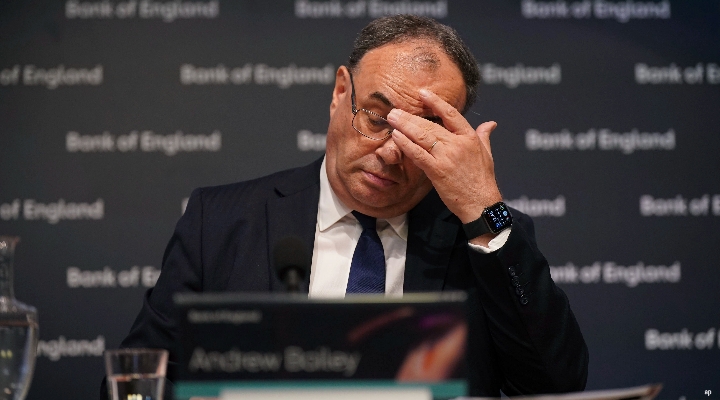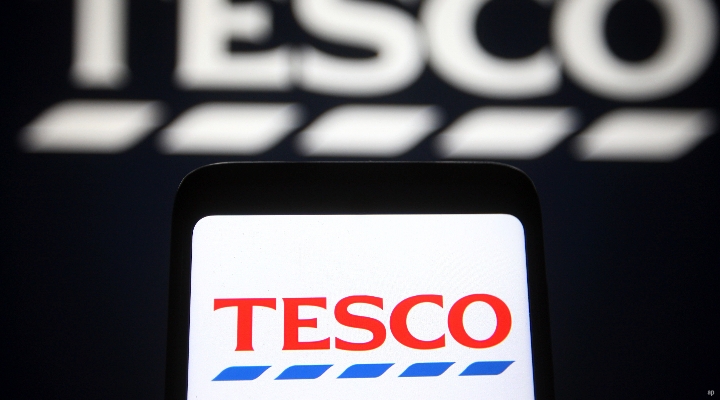
I’ve been pondering this for a while, but a conversation I had on Wednesday pushed me over the edge.
One of the conventional pieces of wisdom about interest rate rises is that they will encourage people to save. Earn more bang for your buck at the bank and you’ll feel a greater incentive to put keep your money stashed away. In theory that cools demand within the economy, taking the edge off the cost of providing so many things to so many people at once and restraining price hikes. It could also beckon recession, but that's a different story.
The Bank of England (BoE) has used this logic several times. Look at its website:
"Higher interest rates make it more expensive for people to borrow money and they also encourage people to save. The result is that, overall, people will tend to spend less."
A very animated gentleman I spoke to this week wanted to talk about just this. As I was trawling the City road interviewing people for my vox pops video on the cost of living crisis, he approached me to complain of how frustrated he was that he’d earned no interest on his money for years. Rate rises couldn’t come soon enough. But I think he's an outlier.
The Savings Time Bomb
Since fear of the pandemic (I specifically say fear of it, because we all know coronavirus is still a threat) has died away, much talk has been devoted to the amount of money pent up in people’s bank accounts. I know a few such folk. Financially speaking, they’ve done very well out of the pandemic, even if the impact of successive lockdowns made life a boozerless drag.
But such news angles serve as a reminder of the difference between short- and long-term trends. The UK’s household savings rates bounced because of the pandemic (to 27.4% of income in Q2 2020), but the picture wasn’t exactly brilliant before that, and it certainly isn’t about to get any rosier now.
In the UK, 40% of people do not have sufficient savings to support themselves for a whole month in the event of loss of income or redundancy. 9% have simply no savings whatsoever.
That figure should terrify any chancellor, but it should also be the subject of much plain-speaking by prospective prime ministers, none of whom seems even remotely concerned about the reality of a life in Britain tossed and turned by bureaucratic dysfunction, healthcare crisis, and, crucially, the cost of filling up a car. Britain runs on cars. Over 77% of households have one.
Let Me Tell You a Story
Let’s just look at the relationship between those three factors. They're important because people don't experience inflation in isolation.
Rishi Sunak began his leadership campaign with the utterly patronising phrase "let me tell you a story," so I've got a story for him (and his rival Liz Truss).
Sarah is 30 and has a daughter aged three called Maisie. Sarah works part-time so she can share childcare duties with her mum, Sandra, aged 68. Mum suffers from arthritis in her knees, which upsets her because it makes it harder to play with Maisie and comfort her when she has a tantrum in the supermarket. What's more, she's struggled to get support from the NHS because the hospital didn't call her back after her GP referred her to the local rheumatology team.
Last week, Sandra fell over while holding Maisie at the park, and, in a desperate bid to protect her granddaughter from a hard landing, reached out for a (very rusty) railing, which cut open her hand.
Having given up on the idea that an ambulance would attend (let’s be honest, we all have), Sandra called Sarah and asked her to take her to the hospital. Sarah left work to do so, forfeiting working hours she really needed to pay the bills.
With a crying Maisie between them, Sarah and Sandra got to hospital to be told that the waiting time to be seen by a nurse would be 12 hours. The wait for a plastics registrar would be even longer, and the resulting appointment and physiotherapy follow-ups a matter of months, not days.
Sensing something needed to be done, Sarah decided to drive her mum another 30 miles to a different accident and emergency department in another county.
On the way she filled up her car to ensure she wouldn’t break down on the lengthy journey home. Frugally, she didn’t fill the tank, as she didn’t want to spend too much money at once, but that decision was still expensive. A quarter of a tank still cost her £20 – money she ideally needed to spend on food.
After an eight-hour wait at the second emergency department, Sandra, Sarah and Maisie returned home exhausted. Sandra was in pain from the injections she’d had in her hand, Sarah was worried about money, and Maisie was upset because Sandra and Sarah had forgotten it was fish finger Friday. Everyone was distressed.
The Perfect Storm
That entire story is completely made up, but it was pretty easy to concoct. You’ll notice how many factors combined to create a nightmare for Sarah, but you’ll also notice that nowhere in it was any mention of savings or bank accounts. This is the world so many people now live in: saving is a luxury. The nightmare is every day, and survival is the goal. People aren't thinking about "inflation", "GDP" or the savings rate.
So as I ponder all this, I think I can temper any expectation that rate rises will suddenly prompt hundreds of thousands – nay millions – of hard-pressed consumers to suddenly start throwing their money into bank accounts. The logic would work if they had something to save, and it would would work even better if the fabric of social infrastructure wasn't patchy at best and - at worst - ripped to pieces.
Ollie Smith is UK editor at Morningstar




























